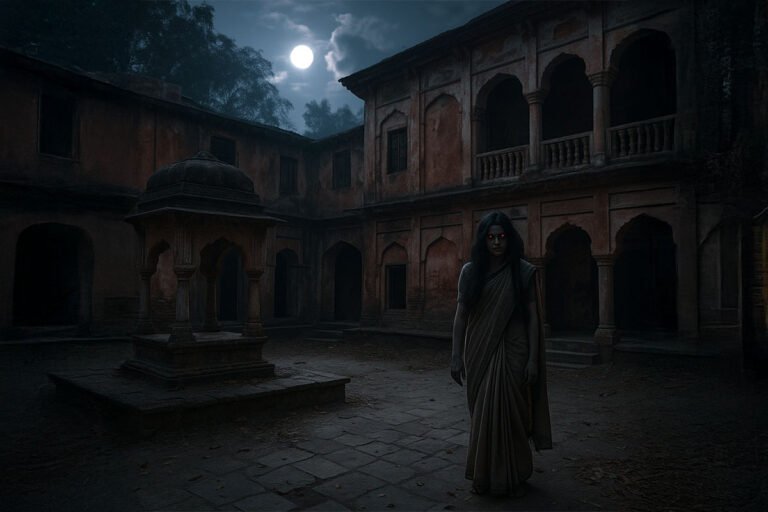In the quiet villages of Karnataka, where ancient traditions and modern life intertwine, there exists a chilling urban legend that has been whispered through generations. This is the tale of Nale Ba, the ghostly witch who roams the streets at night, seeking to lure her victims with the voice of someone they love.
The story dates back to the late 20th century, a time when the rural communities of Karnataka were tightly knit, bound by shared customs and a deep respect for the supernatural. Amidst the simplicity and serenity of village life, strange occurrences began to unsettle the villagers. It was said that a mysterious figure, a witch, wandered the dusty lanes after dark, knocking on the doors of unsuspecting residents.
This witch was no ordinary spirit. She possessed a terrifying ability—to mimic the voice of a loved one. Whether it was the comforting tone of a mother, the familiar call of a father, or the sweet voice of a spouse, the witch could perfectly imitate it. The unsuspecting victims, hearing the voice of someone they trusted, would open the door, only to be greeted by the witch. What happened next was the stuff of nightmares, for those who opened the door were never seen again.
According to the legend, the witch was a bride who had died tragically on the day of her wedding. Betrayed and heartbroken, she had returned as a vengeful spirit, cursed to wander the earth, seeking to steal away the lives of those who unwittingly opened their doors to her.
Fear of this malevolent spirit spread quickly through the villages. Stories of entire families vanishing overnight, leaving behind homes with doors left ajar, became the talk of the region. Panic set in, and the villagers began to search for a way to protect themselves from the witch’s deadly trap.
One night, an elderly man, known for his wisdom and deep understanding of the supernatural, had an idea. He believed that since the witch came each night seeking her victims, perhaps she could be tricked into leaving empty-handed. He advised the villagers to write the words “Nale Ba” on their doors, which means “Come Tomorrow” in Kannada. The idea was simple: the phrase would send the witch away, postponing her visit to the following night, and in doing so, they would keep her at bay indefinitely.
The villagers were skeptical at first, but fear left them with little choice. They began to scrawl “Nale Ba” on their doors in white chalk, hoping it would keep the witch away. And to their surprise, it worked. The witch, upon seeing the message, would retreat, only to return the next night and be met with the same message again.
“Nale Ba” became a protective mantra, a shield against the unknown. The legend of the witch persisted, but the people of Karnataka found solace in the simple phrase that kept her at bay. For years, “Nale Ba” remained a common sight on doors across the villages, a testament to the power of folklore and the human desire for protection against the supernatural.
As time passed, the story of the witch evolved, blending with the rural landscape of Karnataka. While some dismissed it as just a ghost story, others swore by its truth, recounting eerie experiences and unexplained disappearances.
Today, the legend of Nale Ba is remembered as a fascinating piece of Karnataka’s cultural tapestry. It is a reminder of how urban legends can capture the imagination, instilling both fear and a sense of community as people come together to protect themselves from the unknown. And though the words “Nale Ba” may have faded from the doors of modern homes, the story of the witch who comes knocking in the night lives on, whispered in hushed tones and passed down as a warning to those who might dare to open the door.
In the end, the Nale Ba legend is more than just a ghost story; it’s a reflection of the human spirit’s resilience, the power of belief, and the way in which we navigate the mysterious and the unknown. Whether you believe in the witch or not, one thing is certain—if you hear a knock on your door at night and a familiar voice calls out, you might want to think twice before answering.









One Response